![How To Switch Career In UI/UX Design? Easy or Hard? [2024] 1 Post thumbnail](https://www.guvi.in/blog/wp-content/uploads/2023/12/how_to_switch_to_a_career_in_ui_ux_design_.webp)
How To Switch Career In UI/UX Design? Easy or Hard? [2024]
Nov 26, 2024 5 Min Read 3701 Views
(Last Updated)
Do you have enhanced design thinking abilities? Fascinated by a rewarding career in UI/UX? Then, switch to a creative UI/UX design career from your monotonous job.
Starting on a journey toward a new career can be both exciting as well as challenging. In the dynamic world of technology, UI/UX is among the most promising and sought-after careers. If you find yourself drawn to creativity and technology, exploring a career in UI/UX design might be the key to unlocking a world of infinite opportunities.
What makes UI/UX design one of the best career choices in today’s digital landscape? How can you transition into this field successfully, being a professional from another industry? In this blog, find answers to all the questions that have been troubling you. This comprehensive guide aims to provide insights into the fundamentals, required skills, and the scope of UI/UX jobs.
Before Switching to a career in UI/UX, ensure that you are passionate about taking risks for the new career and then go for it. Make sure you research and learn the ins and outs of the field. So, Let’s get started by answering some of the basic questions among aspirants!
Table of contents
- What is UI Design?
- What is UX Design?
- Steps Involved in Switching To A Career In UI/UX Design
- Foundational Knowledge in UI/UX Basics
- Building a Strong Portfolio
- Networking
- Gaining Relevant Education and Certifications
- Proficiency in UI/UX Design Tools
- Developing the Required Skillset
- Keeping Up with the Design Trends
- Seek Internship Opportunities & Freelance Gigs
- Why People Switch to a Career in UI/UX?
- E-Commerce and Retail
- Mobile App Development
- Health-Tech and Wellness
- FinTech and Finance
- Wrapping Up
- FAQs
- Is a degree necessary for a career in UI or UX design?
- Is coding important for UI/UX professionals?
- What is the average salary for a UI/UX designer?
- How hard it is to get a job in UI UX design?
- Why is empathy important for a UX designer?
What is UI Design?
User Interface (UI) is the visual factor of software, applications, websites, and digital devices that users interact or engage with. UI design sheds light on how the product looks and functions.
It’s the graphical layout, buttons, icons, and overall aesthetic appeal of the product that enhances user experience. A UI designer is responsible for creating visually appealing interfaces that are not only aesthetically pleasing but also appear intuitive and user-friendly.
As we proceed to the next phase, make sure you understand the fundamentals of UI/UX, which includes heuristic analysis, journey maps, testing, etc. If you want to explore more about it, join GUVI’s UI/UX Course with Placement Assistance. You’ll also learn about the tools used in UI/UX which are AdobeXd, Illustrator, Photoshop, Figma, and many more. Let’s proceed further.
What is UX Design?
User Experience (UX) is the unified process of enhancing user satisfaction by improving usability, accessibility, and overall delight in the interaction between users and a product.
UX delves into the entire user journey, from the moment a user lands on a website or app to the completion of their desired actions. A good UX design thrives to make the journey or the desired actions of the user, friendlier and effortless in the shortest time.
Know More About What is UI/UX? Top Things to Know in 2024
Steps Involved in Switching To A Career In UI/UX Design
Starting it from scratch or switching the career in between, both involve the same kind of effort and determination. Here are the top steps involved in switching to a career in UI/UX design from your stream.
Foundational Knowledge in UI/UX Basics
Understanding these basics will form a solid foundation for your journey into UI/UX design. Before diving into the technical topics, it’s crucial to grasp the fundamentals of UI/UX design. Explore the principles that promote effective design, such as visual hierarchy, consistency, usability, accessibility, user empathy, navigation, affordance, Wireframing and prototyping, and more.
Building a Strong Portfolio
Your portfolio is proof of your practice projects and a showcase of your creativity. Assemble a collection of your best work, including projects that highlight your skills in both UI and UX. A well-crafted portfolio is often the key to securing your first role in UI/UX design.
Networking
Networking is a golden card in any career transition. Engage with the UI/UX community through online forums, social media, and local meetups. Connecting with professionals in the field can open doors to mentorship, job opportunities, and valuable insights.
Gaining Relevant Education and Certifications
Acquiring the knowledge of necessary UI/UX skills from industry-led experts is crucial in this kind of career transition. Gaining certifications from reputable companies will be proof of your expertise and achievements. Sign up for UI/UX Bootcamp, workshops, and full-length online courses that will help you break the barriers to becoming a UI/UX designer. The journey of acquiring certification and skill upgradation will be a key to switching to a career in UI/UX.
Proficiency in UI/UX Design Tools
Proficiency in industry-standard design tools helps beginners get in pace while beginning their career as a UI/UX professional. Familiarize yourself with tools like Adobe XD, Sketch, or Figma, and stay updated on their shortcuts, efficient usage, and latest features. Practical knowledge of these tools will be indispensable in your daily routine as a UI/UX designer.
Developing the Required Skillset
For a creative field like UI/UX, possessing the right skill set is crucial. To qualify as a UI/UX designer and bring your creative design ideas to life, you should improve the following technical and soft skills:
User Research Skills
UX designers need to be skilled in user analysis methods such as surveys, interviews, and usability testing to gather insights into user behaviors, preferences, and pain points.
User-centric Design
Keeping the end-user at the forefront of the project is significant while designing a user interface. A UI designer must prioritize the needs and preferences of the end-users, understanding user behaviors, conducting user research, and incorporating feedback into designs are essential aspects of creating user-centric interfaces.
Coding Skills
A basic understanding of front-end development programming languages like HTML, CSS, and JavaScript is a valuable asset for UI designers. This enables better collaboration with developers and ensures the feasibility of design concepts by allowing a smoother transition from design to development.
Wireframing and Prototyping
Proficiency in creating wireframes and prototypes is essential for visualizing and testing design concepts. Sketch, Figma, or Adobe XD are the commonly used wireframing and prototyping tools to bring design ideas to life before implementation.
Storytelling
UX designers need to be persuasive storytellers, conveying the user journey and design decisions to stakeholders. They should interact and engage users with interactive storytelling by offering exceptional user experiences.
User Empathy
Designers should understand the user’s perspective and empathize with their needs and challenges. Empathy ensures that designers create solutions that genuinely address user pain points.
Communication & Collaboration
Effective communication is essential for collaborating with cross-functional teams, including developers, UX designers, project managers, and other stakeholders.
Problem-Solving Skills
UI designers often encounter challenges. So, being able to analyze problems, think critically, and find creative solutions is a valuable skill in this field.
Analytical skills
A UI designer should perform usability testing, monitor data on product usability, and find ways to improve existing products while using data to infer new product ideas.
Find out 10 Skills Required to Become a UI/UX Designer
Keeping Up with the Design Trends
The world of design is ever-evolving. Follow subject-matter experts, industry-related blogs, podcasts, and webinars, and immerse yourself in design publications to stay aware of the latest trends. Adapting to new design trends showcases your commitment to delivering cutting-edge solutions to the employer you interview with.
Seek Internship Opportunities & Freelance Gigs
Practical experience is invaluable in UI/UX design. Seek internships or freelance projects to apply your skills in real-world design scenarios. This hands-on experience will enhance your problem-solving abilities and build your professional confidence. Freelance gigs are so popular among UI/UX professionals as it is different from conventional working style and boosts creativity.
Why People Switch to a Career in UI/UX?
UI/UX has become the most popular & creative field around the world. Since UI/UX is a creative field, people who have transferable skills from previous careers and experience are driven by the freedom of innovation that the field of UI/UX offers.
![How To Switch Career In UI/UX Design? Easy or Hard? [2024] 2 How to switch to a career in UI/UX design](https://www.guvi.in/blog/wp-content/uploads/2023/12/switching-to-UIUX-career-1200x628.webp)
This field is attracting people with varied skills and interests across numerous industries. Career growth and rewarding salary are the main reasons why people switch to a career in UI/UX. Let us find out the top industries that employ UI/UX professionals with beneficial career growth and rewarding salaries.
1. E-Commerce and Retail
In the field of e-commerce, UI/UX design plays a pivotal role in creating user-friendly interfaces that drive conversions. From seamless navigation to persuasive product pages, UI/UX designers contribute to the overall success of online retail platforms. Companies like Amazon and Flipkart are popularly hiring UI/UX designers.
Average Annual Salary: ₹8.5 LPA*
2. Mobile App Development
With the upsurge of smartphones, the demand for mobile app designers has increased. UI/UX designers in the mobile app development space are tasked with creating interfaces that optimize the limited screen real estate while delivering a delightful user experience.
Average Annual Salary: ₹9.0 LPA*
3. Health-Tech and Wellness
In the health tech and wellness industry, UI/UX designers contribute to the development of user-friendly healthcare apps and platforms. The sensitivity of these applications requires a nuanced approach to design.
Average Annual Salary: ₹10.4 LPA*
4. FinTech and Finance
In the field of FinTech, UI/UX designers play a crucial role in simplifying complex financial interactions. From banking apps to investment platforms, designers contribute to creating interfaces that instill trust and facilitate seamless transactions.
Average Annual Salary: ₹8.0 LPA*
*Salary credits: Ambitionbox
Highlights: People with varied wants, behaviors, and skillset choose a career in UI/UX because the field demands such vibrant people who can understand users’ mindsets, emotions, and course of actions. This is why user-centricity and empathy is a crucial skillset for UI/UX designers and that can be developed by aspirants from any field.
Kickstart your UI/UX journey by enrolling in GUVI’s UI/UX Design Course where you will master technologies like AdobeXd, Illustrator, and Figma, and build interesting real-life UI/UX projects.
Wrapping Up
The effectiveness of switching your career to UI/UX depends upon how much time and effort you invest in. While you are preparing for a UI/UX career, make mindful decisions about giving yourself a career break or equipping yourself with the right resources to gain skills while existing in your current job.
We hope this blog will help you to comfortably switch to a career in UI/UX. As discussed above, keeping the right skills in check is crucial, and also transitioning to a career in UI/UX design demands dedication, foundational knowledge, and practical experience.
Explore more with The Future and Scope of UI/UX Design: A Comprehensive Overview
By mastering the fundamentals, honing your skills, and staying connected with the design community, you can position yourself for success in this dynamic field. Always, remember that a rewarding career in UI/UX design is within your reach!
FAQs
1. Is a degree necessary for a career in UI or UX design?
While a degree can be beneficial, many UI or UX designers enter the field through self-learning, workshops, and practical experience. In this field, a strong portfolio is often more crucial than a formal degree.
2. Is coding important for UI/UX professionals?
While coding is not compulsory for UI/UX designers, having a basic understanding of HTML, CSS, and JavaScript can be beneficial for effective communication with stakeholders, especially developers.
3. What is the average salary for a UI/UX designer?
The average annual salary for a UI/UX designer in India is INR 6.0 LPA
4. How hard it is to get a job in UI UX design?
Entering into the field of UI/UX design might feel challenging at the beginning but it isn’t impossible. With dedication, foundational knowledge, and the right expertise, anyone can become a UI/UX professional within 5-6 months of training.
5. Why is empathy important for a UX designer?
Empathy is crucial for UX designers as it enables them to understand user needs, pain points, and motivations, leading to more effective and user-centric designs.

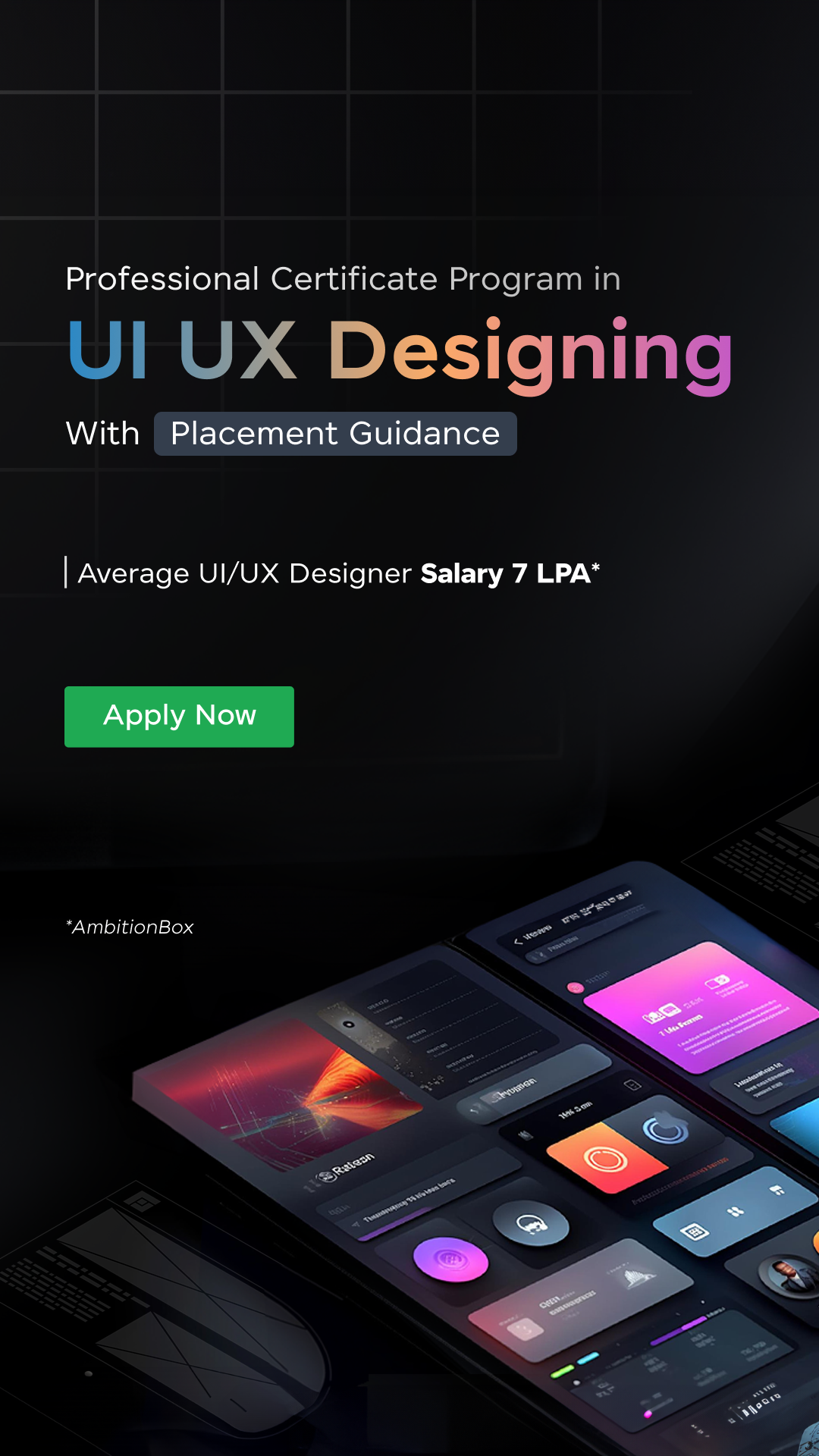







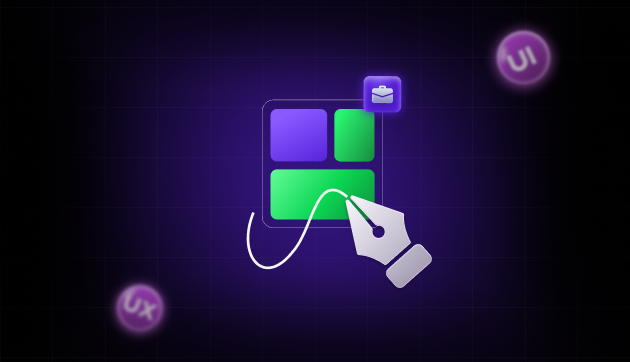
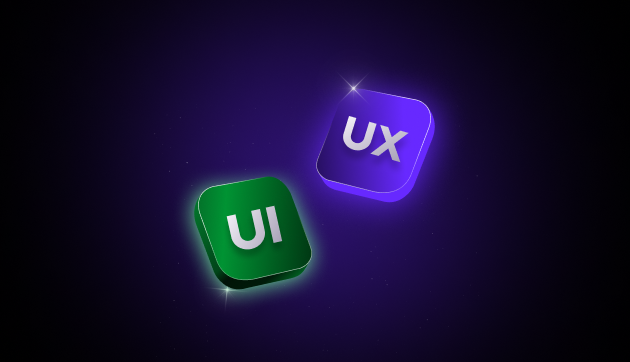
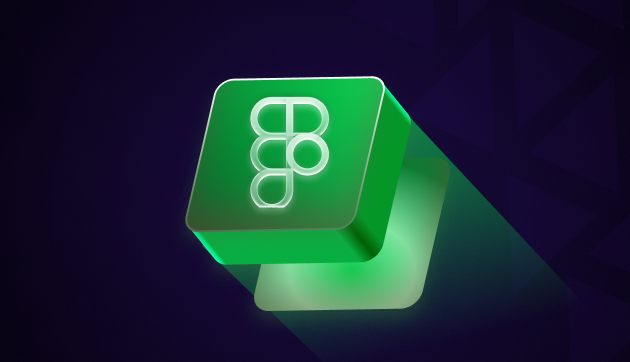
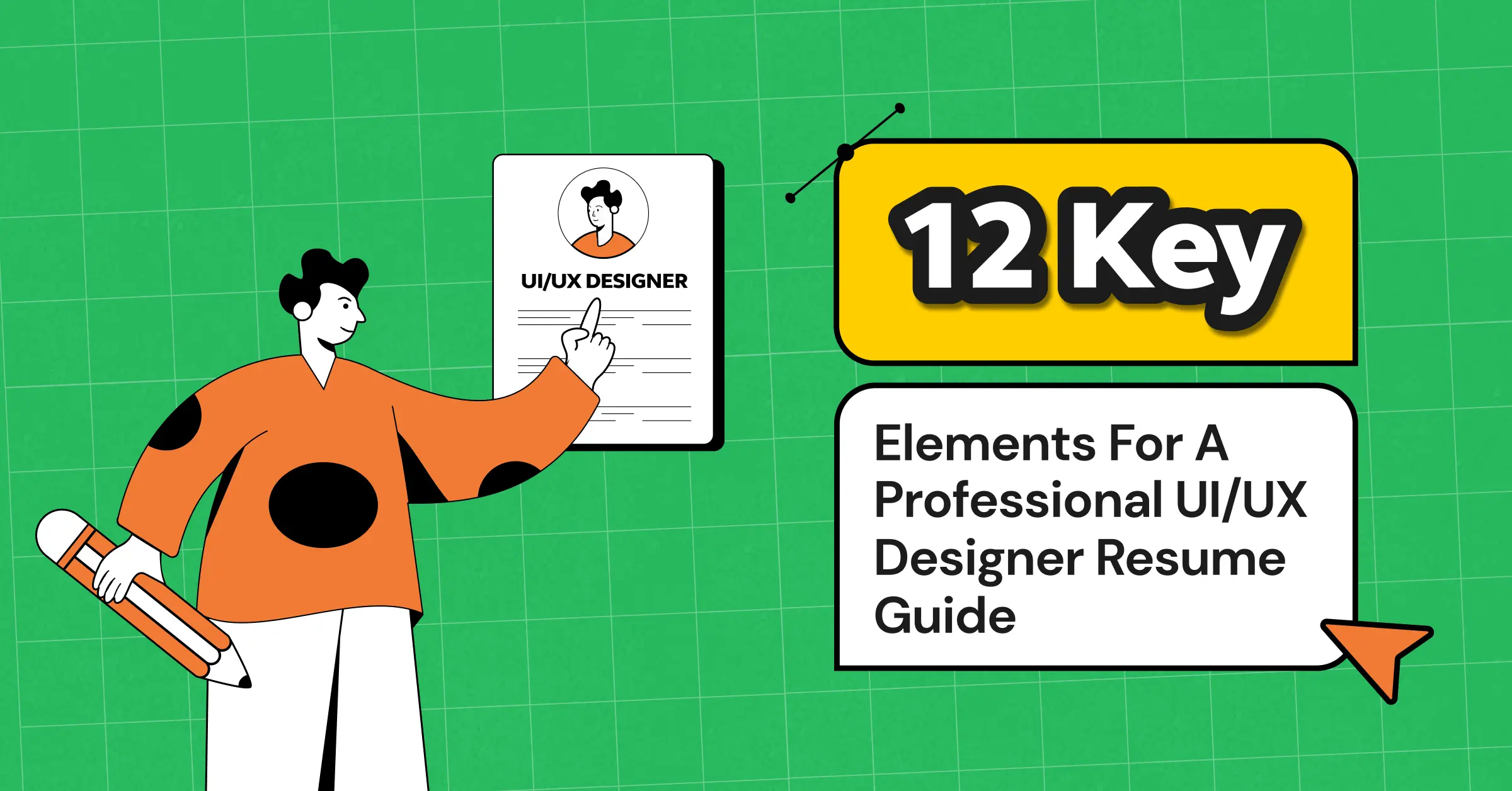
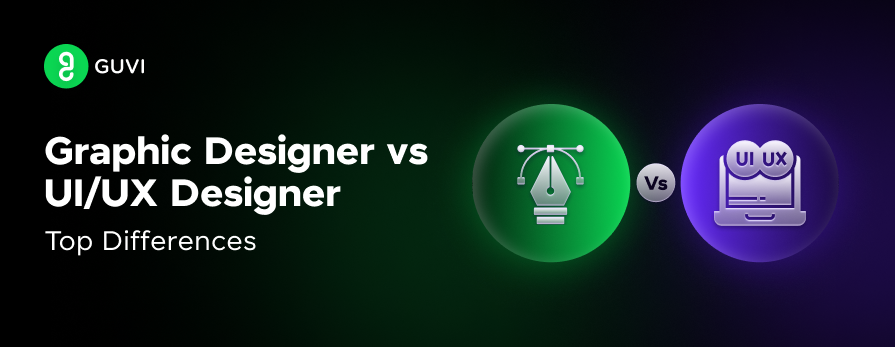
![Wireframe vs. Mockup vs. Prototype: Top Differences [2024] 5 wireframe vs. mockup vs. prototype](https://www.guvi.in/blog/wp-content/uploads/2023/12/Wireframe-vs.-Mockup-vs.-Prototype_-Top-Differences-feature-image.png)

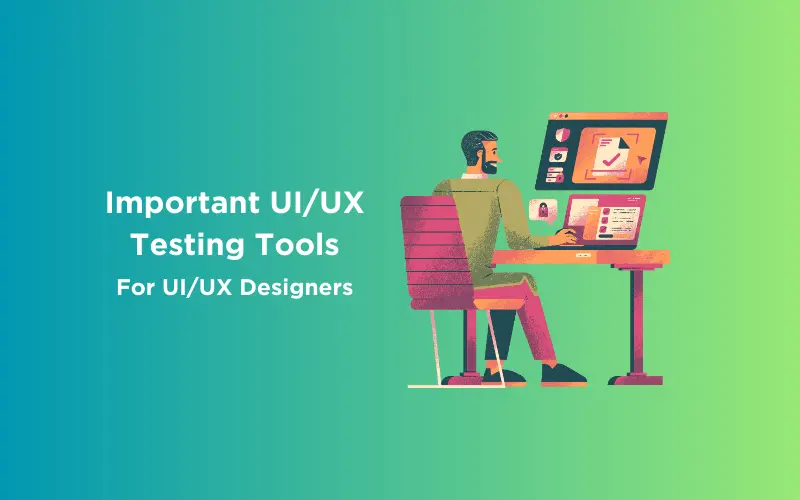
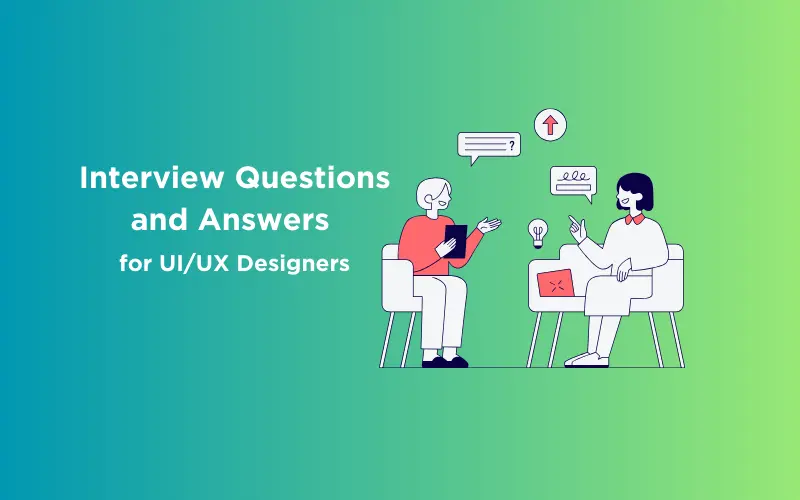
Did you enjoy this article?